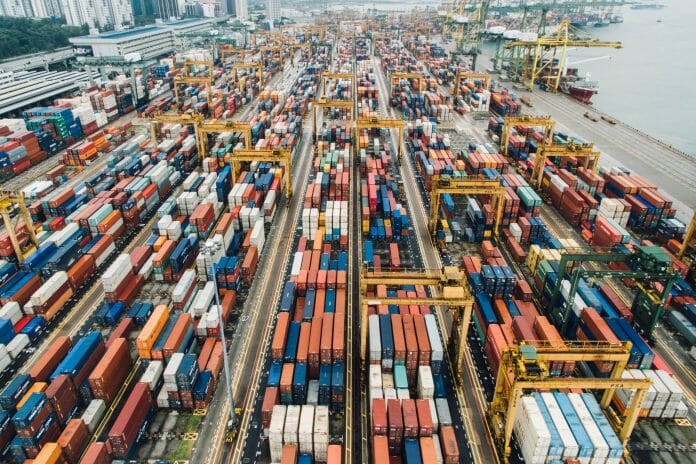By Nazery Khalid,
The upcoming Budget 2021 is set to be a much more conservative one compared with previous year. It will be characterised by austerity measures amid the devastating impact of the Covid-19 pandemic on the Malaysian and global economies, themed on kickstarting the stalled economy, creating jobs, providing financing to businesses and entrepreneurs, and putting more money into consumers’ pockets to spur domestic demand.
Smart money is on less money being allocated for the upcoming Budget as the Government’s coffers takes a hit from the impact of the Movement Control Order (MCO) that has caused demand destruction of many goods and services, sent unemployment, and bankruptcies soaring, and driven the economy teetering at the brink of recession.
This has come at a time when various programs and incentives – involving not an inconsequential amount of money – have already been introduced to assist those most affected economically by the MCO and help businesses to stay afloat.
Players in the logistics industry, which is a crucial facilitator of the nation’s trade-oriented and increasingly domestically driven economy, are no exemption. This industry – encompassing a wide range of activities such as planning, packaging, repackaging, cargo consolidating, transportation, warehousing, distribution, retrieval, storage, inventory management and many others – is the lifeblood of the nation’s economy. These activities are supported by a huge number of enterprises big and small that provide ancillary services, equipment, systems and solutions to logistics industry players.
Naturally, the items in the wishlist of different players in the vast logistics universe differ from one another, based on their business interests, wants, needs, competitive advantages, market landscapes, size of business, customers, regulatory environment, financial standing, strategies, aspiration and outlook, among many others.
However, cutting across the multitude of internal and external factors are several common denominators which bind the wide spectrum of the logistics ecosystem. They are premised on the overarching, principle interest of everyone in the supply chain which is to become more effective, productive and competitive by delivering and receiving goods in a timely, efficient, safe, secure cost effective manner, in full conformance with various industry standards and all regulatory / legal requirements. Also, practically every player along the supply chain has felt the brunt of the disruptions to supply chains and production lines due to the MCO and lockdown imposed in many countries to curb the spread of the coronavirus, hence could use a bit of assistance to help them weather the storm.
The Budget 2021 wishlist of logistics players :
1. Providing full support (infrastructural, promotional, financial, institutional etc) towards initiatives carried out by logistics players within the scope of strategic plans related to trade transport and logistics. These include the National Transport Policy (launched in 2018), Malaysia Shipping Master Plan 2017-2022 and Logistics and Trade Facilitation Masterplan 2015-2020 (LTFM) formulated by the Economic Planning Unit
2. Improving the last mile connectivity to enable goods and materials to reach consumers / end-users in good time or faster. This would require resolving long-standing issues such as formation of bottlenecks along supply chains due to slow clearance of goods at ports, poor connectivity between ports of destination and end-markets, outdated procedures and processes of clearing and sorting out cargos which lead to longer delivery time, and lack / slow pace of automating processes that can facilitate faster movement of goods across supply chains.
3. Facilitating same-day, customized delivery to cater to a markedly shifted landscape in which e-commerce is gaining widespread traction and consumers are increasingly accustomed to and demanding of home delivery for items purchased through online platforms. In this regard, the Government should allocate more funds to create a facilitating ecosystem for online purchases and same-day delivery to meet the needs of the new norm amid the Covid-19 pandemic.
4. Allocating money to build / maintain / improve trade infrastructures such as road and rail to enable seamless, efficient multimodal movement of goods across the supply chains. The same goes with infostructures such as Digital Free Trade Zone Areas to enhance e-commerce and e-logistics. Sizeable allocation should be given to foster connectivity, complementarity, interoperability and integration amongst transport modes and facilities. Lack of these – for example, poor road connections with certain ports in the country – has caused high inland transportation and handling costs of cargos / goods, to the chagrin of logistics players, consumers, businesses and industries.
5. Seeing more incentives – for example in the form of financing, investment tax allowances, pioneer status, tax exemption or carbon credit – to invest in clean energy and green technologies / eco-friendly equipment and solutions, and to reduce carbon footprint and adhere to sustainability principles in logistics operations.
6. Being offered stronger support and a wider range of incentives to adopt to / enhance the use of technologies in Industry 4.0. These include areas such as artificial intelligence, virtual / augmented reality, cloud / quantum computing, Internet of Things, Big Data Analytics, and the use of sensors, unmanned vehicles and machine learning and other hi-tech applications / solutions.
7. More incentives in developing skilled manpower in areas such as ICT, supply chain management, OEM, ODM and high-end engineering to enhance automation, efficiency and productivity. This is in line with the national agenda of economic transformation through high income, value adding and innovation driven activities.
8. Providing greater support towards companies pursuing R&D and innovation in providing value-adding, high-end logistics and supply chain management. This also include tightening protection for intellectual property
9. Providing greater support to and more incentives for SMEs in the logistics industry in the form of financing, institutional support, skills development and marketing platforms to enable them to offer their services to bigger clients, expand their market reach, enhance their competitiveness and pitch for bigger jobs / projects.
10. Providing policy push for mergers, acquisitions and consolidation certain segments of the industry, which is fragmented across the value chain. Efforts by players to consolidate to capture niche segments of the industry such as in cold chain cargo handling, parcel / courier / express delivery service and fourth party logistics must be strongly encouraged by the Government through providing a facilitating institutional framework and ecosystem for the industry players to consolidate. A leaner industry would lead to greater utilization of resources and talent, less duplication, healthy competition, greater revenue, higher margin and growth for logistics companies, and positive effects all around for the Malaysian logistics industry and the nation’s economy.
The fulfillment of the wishlist may not be the panacea that would resolve all the ills and inadequacies within the Malaysian logistics landscape. Obviously a lot more than what have been listed above needs to be done to prop up our logistics industry to world class levels. However, addressing the pressing needs of industry players, some of which are listed above, would not hurt Malaysia’s stand as a trading nation, FDI haven, manufacturing and logistics hub and enhance its global competitiveness.
Domestic and international trade are supported by very capable local logistics players. Malaysia’s 41st place ranking in World Bank’s Logistics Performance Index 2018 stands testimony to how strong its logistics industry is. Nevertheless, we lagged behind in this authoritative ranking behind neighboring countries such as Singapore (7th place) and Thailand (32nd spot). This provides a clear indication that there is much room for improvement for the logistics sector.
It is hoped that with the fulfillment of the above wish list – at least some, if not all – Malaysia can move up the ranking and build a much better logistics ecosystem to facilitate greater trade in a competitive global landscape that is constantly disrupted and altered by technological advancements, policy shifts, new norms and ever-changing production, transportation and consumption patterns.
Nazery Khalid is an avid commentator of the logistics industry, especially in the maritime sector, and a columnist of Business Today. He welcomes comments at [email protected]









